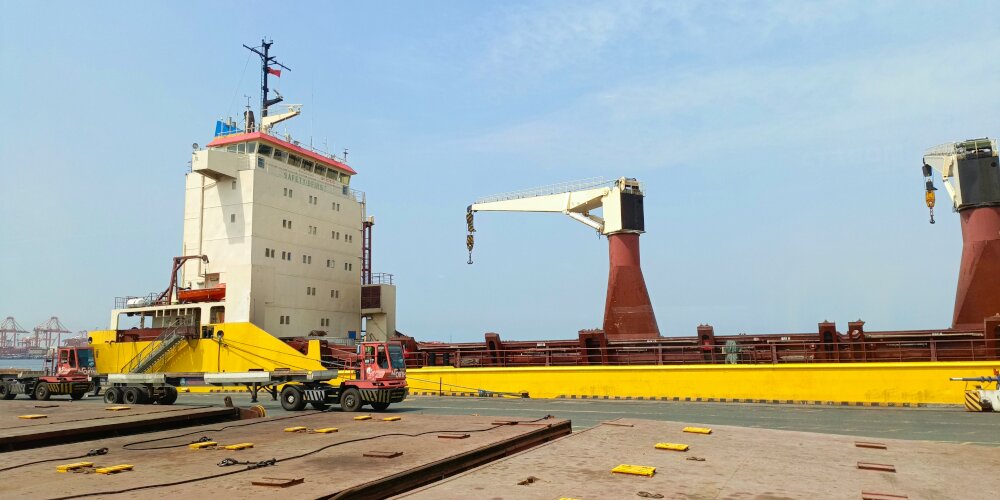Browse our services
Explore how Brookes Bell can help you
Find an expert
Meet our team, find and expert and connect
Contact us
Get in touch, we're here to help

The Global Centre for Maritime Decarbonisation (GCMD) has entered a two-year coalition partnership with Intercargo, the dry cargo shipowners’ association, to tackle the challenges of decarbonising the world’s dry bulk fleet.
The collaboration aims to bridge critical operational and adoption gaps for energy efficiency technologies and low- and zero-carbon solutions across tramp-trade bulk carriers.
Dry bulk vessels represent more than 40% of the global oceangoing fleet by deadweight tonnage, yet their irregular trading patterns make it commercially and operationally difficult to switch to nascent fuels that are only available at a limited number of ports.
With bunkering infrastructure for hydrogen, ammonia, advanced biofuels and other future fuels still under development, the partners have identified near-term measures that are technically viable and commercially accessible.
These measures include drop-in biofuels that can be blended with conventional marine fuels without extensive engine modifications, onboard carbon capture systems that trap emissions before they enter the atmosphere, and established energy efficiency upgrades such as optimised hull coatings. They also include weather routing software and waste-heat recovery units.
GCMD intends to use its technology pilots and trials to remove non-technical barriers to uptake and generate the operational data needed to support wider market adoption.
Intercargo brings its membership network of over 150 shipowning companies and its practical experience of operating Kamsarmax, Panamax, Handymax and gear-equipped bulkers in global trades.
Its consultative status at the International Maritime Organisation will help ensure that lessons learned feed directly into regulatory frameworks for maritime decarbonisation, including revisions to the Energy Efficiency Existing Ship Index and the prospective GHG Fuel Oil Standard.
One of the main obstacles facing dry bulk operators is access to affordable financing for fuel-saving technologies.
To address this, GCMD will deploy a “pay-as-you-save” financing model. Sensors installed on participating vessels will measure and validate fuel savings achieved through efficiency retrofits. Repayments will then be linked to actual savings, reducing upfront capital requirements for shipowners and aligning incentives between investors and operators.
“This partnership offers a valuable opportunity to deepen our understanding of the dry bulk segment’s operational realities and work collaboratively to address gaps in meeting the industry’s decarbonisation targets,” said GCMD Chief Executive Professor, Lynn Loo. “Through Intercargo’s consultative status at IMO, we hope to contribute to the development of global regulatory frameworks for maritime decarbonisation”.
“This partnership helps ensure practical, scalable technologies reach the companies moving most of the world’s essential cargoes,” said Technical Committee Chairman of Intercargo, Dimitris Monioudis. “By combining GCMD’s strength in executing first-of-a-kind pilots with our members’ operational expertise and consultative status at the IMO, we can accelerate progress towards the industry’s decarbonisation targets”.
Over the next 24 months, a series of pilot projects will be rolled out on selected vessels across major dry bulk trades, including iron ore, coal, grain, and bauxite runs. Findings will be shared through open-access reports, industry workshops and IMO submissions.
The maritime and energy sectors are the engines of the global economy. Without them, the goods we buy, the heating we use and much more besides simply wouldn’t be available to us. The maritime and energy sectors support our way of life.
But, who supports them when they need help?
Brookes Bell
For more maritime industry insights, news and information, read the Brookes Bell News and Knowledge Hub…
BIMCO and ASBA Publish Updated Oil Tanker Charter Party | UK Government to Introduce High Seas Treaty Legislation | Local Diver Discovers 140-Year-Old Wreck of Steamship Nantes off Plymouth